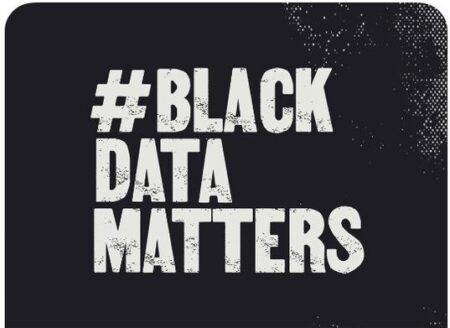On our path to eradicate breast cancer in Black women, Touch, The Black Breast Cancer Alliance, is excited to partner with Morehouse School of Medicine and 2for2 Boobs, and be powered by Ciitizen, to launch #BlackDataMatters, an initiative to empower breast cancer research.
Breast cancer in Black women is a distinct disease that deserves special attention and focus from the breast cancer ecosystem. The physiology of Black women has not been a significant consideration in clinical trial research, and the average participation by Black women in breast cancer clinical trials overall is less than 3 percent. Part of our reluctance to get involved in medical research can be attributed to the fact that nearly one-third of us believe scientists cannot be trusted, compared to 4 percent of white women.
Black breast cancer patients die at a 40 percent higher rate than white breast cancer patients, and these devastating mortality numbers will not change until we better understand the physiology of Black women. When we’re not in clinical trials, we miss access to newly emerging and often life-extending treatments not otherwise available. Until we have more Black women included in clinical research, we cannot end these disparities.
To address this issue head on, we must act now.
That’s why we are ecstatic about launching #BlackDataMatters, a program that puts patients in a position of power to change clinical research and the medical system that often fails Black patients.
This free initiative makes it easy to control health data by collecting, digitizing and organizing medical records through the Ciitizen platform. Empowered with our health data, we can drive change to eliminate breast cancer health inequities and improve research that can help our community collectively, creating the database researchers need to design new treatments, specifically for Black breast cancer patients.
“People have no idea how important their records are,” breast cancer warrior Terrilynn Wade said. “You don’t want to have to wait for your records down the line when you need them. To have them all in place is an amazing thing.”
The process is fast and easy. Wade signed up for Ciitizen in less than five minutes with her 3-month-old granddaughter sitting on her lap.
“We don’t have time to dilly dally with paperwork,” Chawnté Randall said. “We need decisions fast, in a hurry. With all of my records compiled in a Ciitizen account, that’s one less thing I have to worry about.”
#BlackDataMatters will drive access to research opportunities for our community. With medical data secure, protected and private in a Ciitizen profile, women can share it for their own care, use it to apply for a clinical trial and donate it to fuel lifesaving research. We’re democratizing precision medicine by giving patients the ability to control their own care, while contributing to research that will save lives.
“Clinical trials are a way to make a difference for yourself and our community. Every step we’ve taken in the fight against cancer has come from these trials,” Sharon Rivera, a triple-negative breast cancer survivor, said. “We don’t have a cure, but these scientists are working to save our lives.”
In order to help our community effectively, we must overcome the huge barrier of mistrust based on the harmful scientific history of exploitation and racism by providing tools that give Black women confidence that their data will be protected and safe. The history of the Tuskegee study and Henrietta Lacks have left their mark on our collective psyche, but we have to get past this.
James Lillard, M.D., an immune-biologist leading the Morehouse School of Medicine Total Cancer Care Program, has teamed up with #BlackDataMatters to provide instant and easy access to research for patients. As a trusted voice in the Black community, he believes the partnership will be transformative for Black patients: “As we engage these Black breast cancer patients, they’ll also have the opportunity to sign up for our Total Cancer Care study, where we will provide patients with a clinical sequencing panel and genetic testing free of charge,” he said. “With that information, clinical treatment decisions can be made based on the mutations driving their cancer.”
Talullah Anderson, a three-time breast cancer survivor and founder of 2for2 Boobs, a Washington, D.C.-based breast cancer foundation that focuses on the importance of early detection, is thrilled to be in this collaborative. “I am excited to be part of this national movement that provides an invaluable service to patients and gives them access to life-saving research,” she said. “It’s time to stand up, take control of our health and let the medical industry know #blackdatamatters!”






